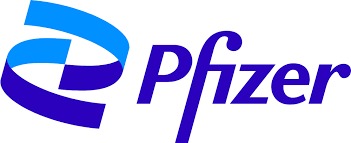Pfizer Ltd has officially launched its next-generation Pneumococcal Polysaccharide Conjugate Vaccine (Adsorbed) IP, 20-valent, in India, marking a major milestone in the country’s fight against invasive pneumococcal diseases. This vaccine, designed to protect against 20 serotypes of Streptococcus pneumoniae, offers the broadest coverage available to date and is expected to significantly reduce the burden of pneumonia, meningitis, and bloodstream infections among vulnerable populations.
The launch aligns with Pfizer’s global strategy to expand access to advanced immunization tools and reinforces its commitment to public health innovation in India.
Key highlights of the launch
1. The vaccine is a 20-valent pneumococcal conjugate formulation, offering protection against 20 serotypes responsible for the majority of invasive pneumococcal diseases
2. It is adsorbed on a suitable adjuvant to enhance immune response and is approved for active immunization in adults and children
3. The product builds on the legacy of Pfizer’s earlier PCV13 vaccine, adding seven additional serotypes associated with antibiotic resistance and increased disease severity
4. The vaccine has been validated through extensive clinical trials, including three Phase 3 studies involving over 6,000 adult participants globally
Scientific and clinical foundation
- The vaccine contains purified capsular polysaccharides from 20 distinct serotypes of Streptococcus pneumoniae, each conjugated to a carrier protein to stimulate a robust immune response
- It is formulated as a sterile suspension and meets stringent safety and immunogenicity standards set by national regulatory authorities
- The conjugation process ensures T-cell dependent immunity, which is critical for long-term protection and memory response
- The vaccine has demonstrated efficacy in preventing invasive disease and pneumonia, especially in older adults and individuals with chronic medical conditions
Public health significance
- Pneumococcal disease remains a leading cause of morbidity and mortality in India, particularly among children under five and adults over sixty
- The introduction of a 20-valent vaccine is expected to reduce hospitalizations, antibiotic use, and healthcare costs associated with pneumococcal infections
- It supports India’s broader immunization goals under the Universal Immunization Programme and complements existing pediatric and adult vaccine schedules
- The vaccine may also play a role in reducing antimicrobial resistance by preventing infections that often require broad-spectrum antibiotics
Market and accessibility outlook
- Pfizer is working with healthcare providers, hospitals, and government agencies to ensure wide availability of the vaccine across urban and rural regions
- The company plans to roll out educational campaigns to raise awareness among clinicians and the public about the importance of adult immunization
- Pricing strategies are expected to balance affordability with sustainability, ensuring access for both private and public sector patients
- The vaccine will be available in single-dose vials and pre-filled syringes, with cold chain logistics in place to maintain potency
Regulatory and global context
- The vaccine has already received approvals from major health authorities including the European Medicines Agency and the Hong Kong Department of Health
- It is marketed under the brand names Apexxnar in the EU and Prevnar 20 in the US and other regions
- Its launch in India follows successful global deployment and is backed by real-world evidence of safety and effectiveness
Conclusion
Pfizer’s launch of the 20-valent Pneumococcal Polysaccharide Conjugate Vaccine in India represents a leap forward in preventive healthcare. With expanded serotype coverage, proven efficacy, and strategic distribution plans, the vaccine is poised to become a cornerstone in India’s battle against respiratory infections. As the country continues to strengthen its immunization infrastructure, this innovation offers renewed hope for millions at risk.
Sources: Pfizer Press Release, Indian Pharmacopoeia Commission, PR Newswire Asia
